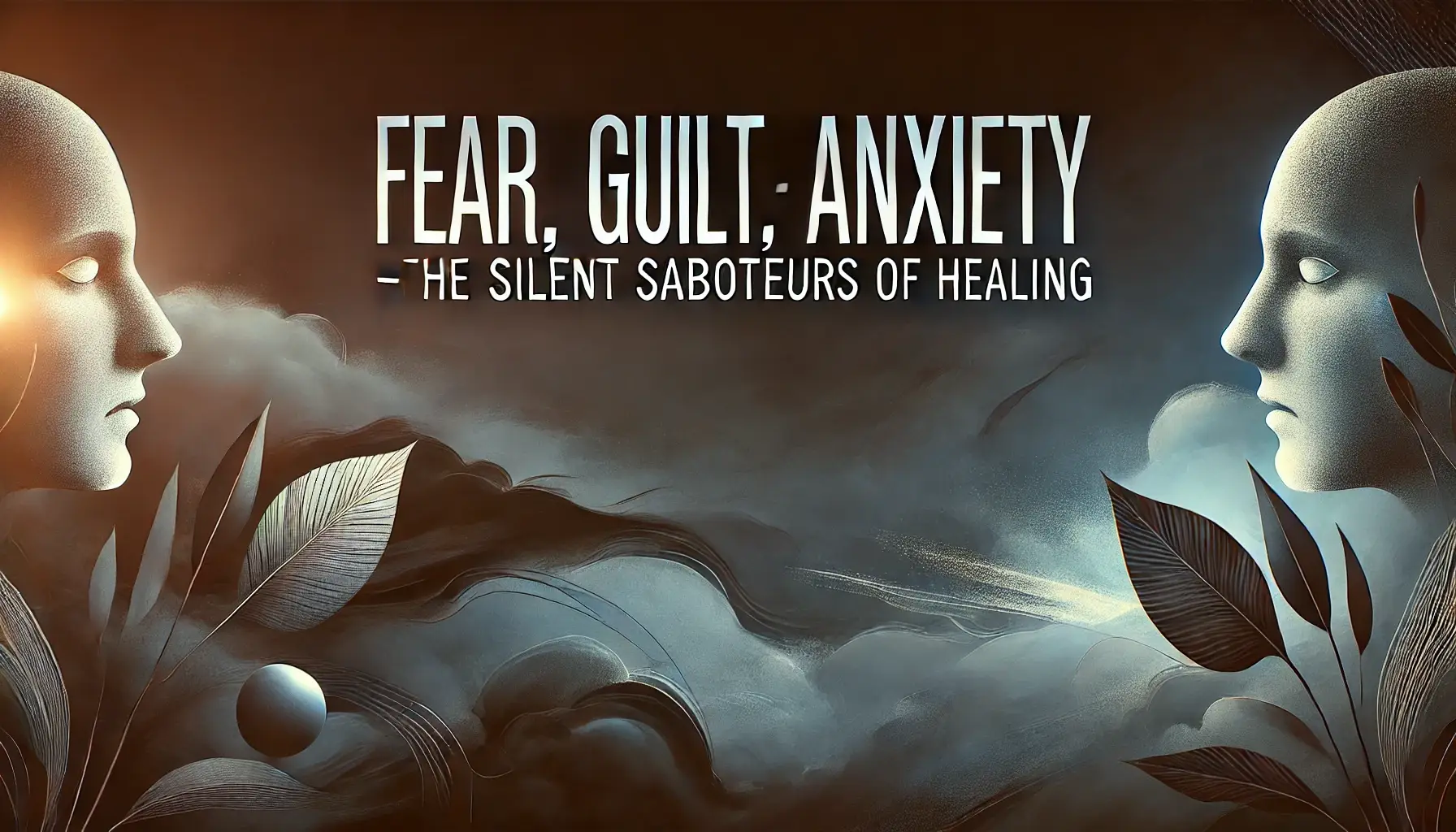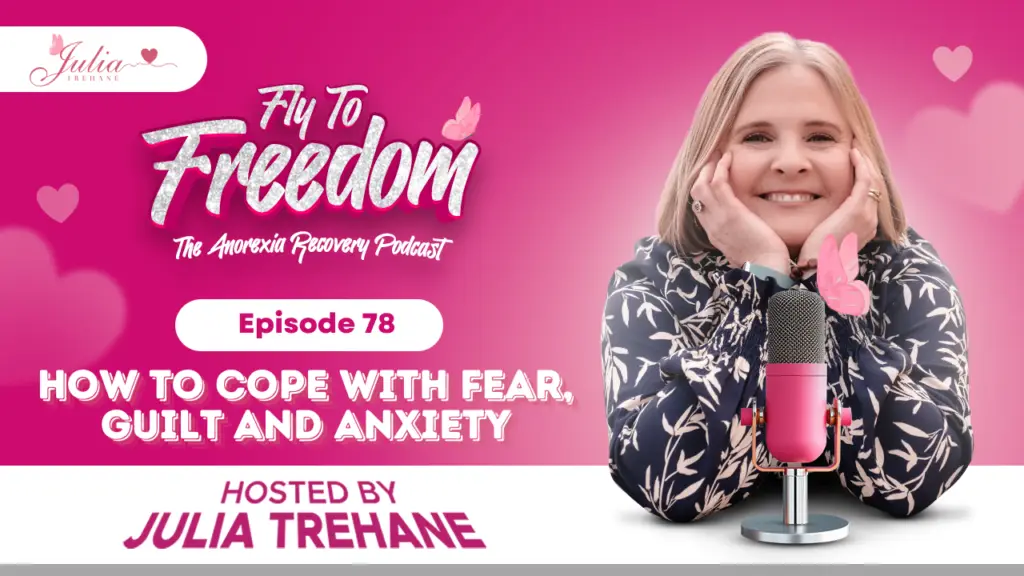Understanding Anxiety and Fear in Eating Disorder Recovery
Recovery from an eating disorder is, without question, one of the most challenging and courageous journeys a person can take. It’s a process filled with fear and anxiety—emotions that can feel insurmountable at times. In fact, for many people, the fear of weight gain, the fear of losing control, or simply the fear of the unknown can create a mental state that feels like being stuck on an “anxiety elevator,” constantly moving between floors of mild stress to full-blown panic.
But what if I told you that fear and anxiety don’t have to be the enemies of your recovery? What if you could learn to manage them, even work with them, to help you move forward? In this blog, we’ll explore how fear and anxiety show up in eating disorder recovery, the science behind these emotions, and practical tools—like journaling and mantras—that can help you navigate these challenges.
Why Fear and Anxiety Are So Prevalent in Recovery
When you’re living with an eating disorder, fear becomes part of the everyday experience. You may feel anxious about food, your body, or losing the sense of control that the eating disorder gives you. These fears often intensify during recovery, when you’re actively challenging the eating disorder’s rules and behaviors.
This anxiety can feel overwhelming, and there’s a reason for that. Studies show that up to 50% of people with anorexia also struggle with anxiety disorders
This isn’t a coincidence. Malnutrition affects the brain’s ability to regulate emotions, which makes it much harder to manage feelings of fear and anxiety. Your brain, in its undernourished state, constantly scans for danger, amplifying your fears and keeping you in a heightened state of anxiety.
The Science Behind Fear and Anxiety
Let’s break down what’s happening in your body when you feel fear. When you perceive a threat—whether real or imagined—your brain activates your fight-or-flight response. This response floods your body with stress hormones like adrenaline and cortisol, which prepare you to either confront or run from the danger.
The real challenge with this flood of stress hormones is that they’re meant to pass through your system quickly. However, when you resist the fear—by trying to push it away or avoid it—you keep those hormones circulating longer, intensifying the anxiety. This is why resisting fear often makes it feel worse, rather than better.
Why Fighting Fear Doesn’t Work
When it comes to fear and anxiety, our natural response is often to fight them, to try to push them away. But here’s the thing: fighting fear doesn’t work. It can actually push you further into panic. The more you resist, the more your brain interprets the situation as dangerous, keeping those stress hormones flowing.
Instead of trying to resist or suppress your fear, what if you welcomed it? What if, instead of seeing fear as an obstacle, you saw it as part of the process—a natural reaction to doing something new and challenging? Welcoming fear can reduce its intensity. This doesn’t mean giving in to your eating disorder. It means acknowledging that fear is there and choosing to move forward anyway.
Journaling: A Tool for Managing Fear
One of the most powerful tools for managing fear and anxiety during recovery is journaling. Writing down your thoughts allows you to externalize your fears, making them easier to process. When fear creeps in, grab your journal and ask yourself questions like:
- What am I afraid of right now?
- What story am I telling myself about this fear?
- Is this fear rational, or is it my eating disorder speaking?
- What small action can I take to face this fear?
By putting your fears on paper, you can begin to see them for what they are: temporary emotions that don’t have to control you. Journaling also gives you the opportunity to reflect on your progress and remind yourself of your “why”—the deeper reason you’re choosing recovery. It helps ground you in the reality that fear is just a part of the process, not a reflection of who you are.
If you’re looking for a starting point, consider writing about the stories you attach to your fears. For example, if you’re afraid of gaining weight, what does that weight gain mean to you? What underlying fear is driving that thought? Often, when you dig deeper, you’ll discover that your fear isn’t about weight itself but about feeling judged, unworthy, or out of control. Once you identify the story behind the fear, you can start to rewrite it in a more compassionate and empowering way.
The Power of Mantras in Recovery
Another powerful tool for managing fear in recovery is the use of mantras—simple, calming phrases that can help shift your mindset when anxiety strikes. Mantras work because they give your mind something to focus on other than the fear itself. When you repeat a mantra, you’re essentially training your brain to calm down, to override the anxiety response.
Here are some examples of mantras you can use when fear and anxiety arise:
- “I see you, fear, and I know you will pass.”
- “I am safe in this moment.”
- “This is just a feeling, not a fact.”
- “I am stronger than my fear.”
By repeating these phrases, you remind yourself that fear is temporary and that you have the power to move through it. This practice helps activate your parasympathetic nervous system, which is responsible for calming you down after a stressful event.
This podcast episode accompanies this blog article really well! Have a listen by clicking the image.
Sign Up for Daily Love Emails: A Mantra to Start Your Day
If you find that mantras resonate with you, I invite you to sign up for my Daily Love emails. Every morning, you’ll receive a new mantra or affirmation straight to your inbox—designed to set a positive tone for your day and help you face recovery challenges with strength and compassion. These emails aren’t just about motivation; they’re about infusing your mornings with intentional love and support, so you can start each day grounded and ready to take action.
Whether you’re feeling overwhelmed or just need a little extra encouragement, these mantras will give you the gentle nudge you need to move forward. Plus, you’ll get a sneak peek of my weekly podcast episode and extra resources to help you on your recovery journey.
Sign up now and let’s make every day a little brighter together.
Take Action: Your Journey Forward
Recovering from an eating disorder means stepping into the unknown—and yes, that’s scary. But the good news is, fear doesn’t have to stop you. By acknowledging fear, journaling through your emotions, and using mantras to shift your mindset, you can manage the fear and anxiety that inevitably show up in recovery.
Remember, each small step you take in facing your fears is a victory. And as you continue on this journey, be kind to yourself. You are doing incredibly brave work, and you deserve every bit of compassion and love along the way.
If you’re ready to take the next step in your recovery, grab your journal, write out your fears, and let today be the day you choose to move forward—even if it’s just one small step at a time.
If you’d like me to help you through your recovery, with proper, effective, science backed techniques and everything you need to create a better life, free from your eating disorder, reach out to me and take that 1st step. Oh, and this part is free of charge by the way!


